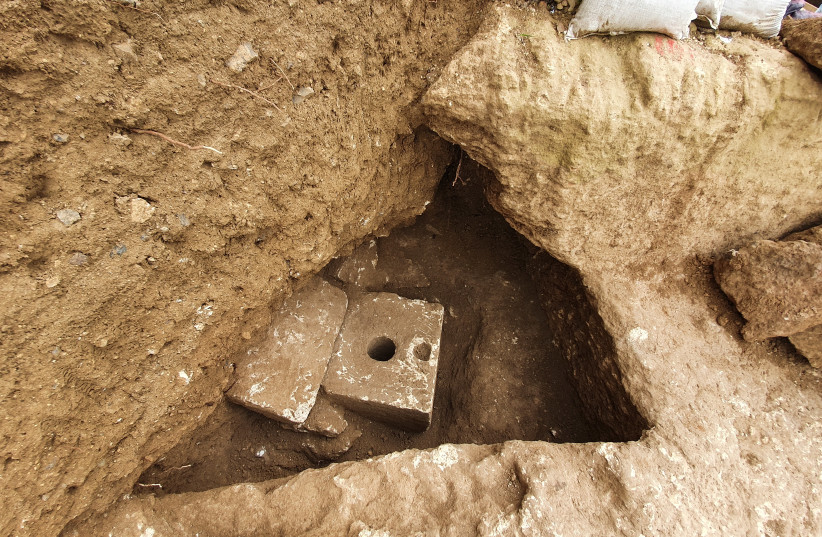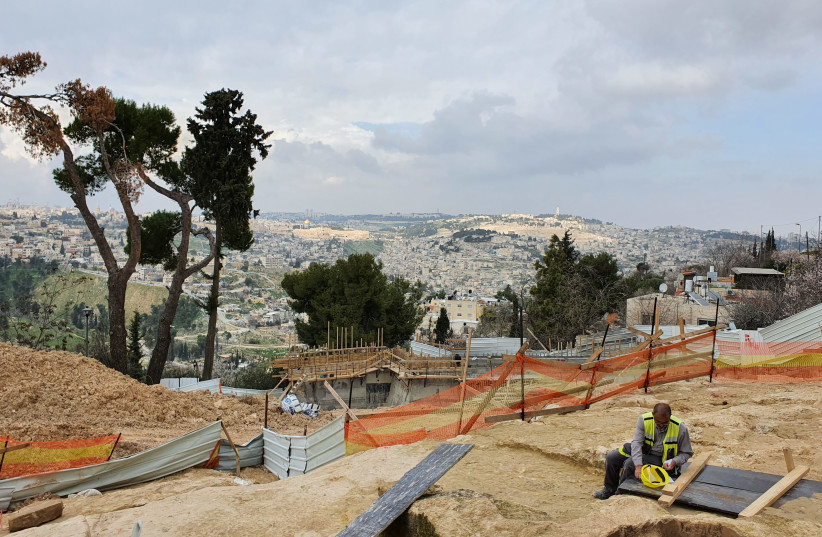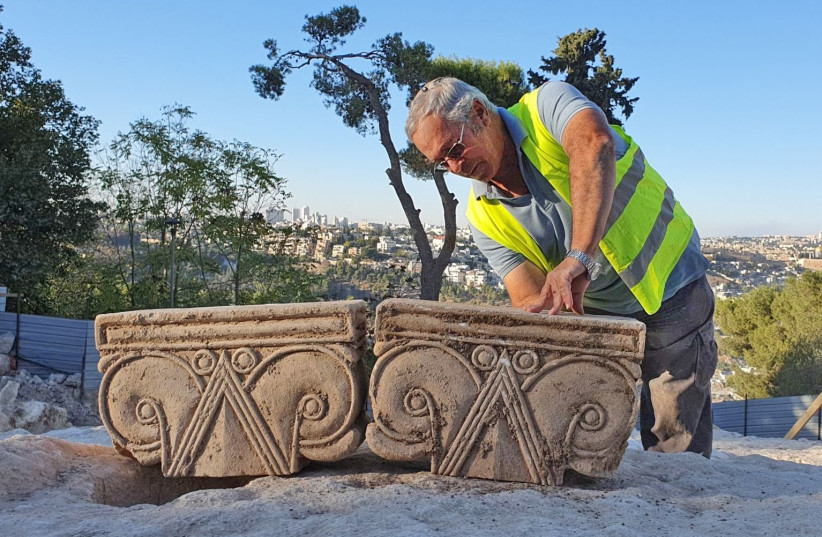 Archaeologists find 2,700-year-old toilet in luxurious palace in Jerusalem
Archaeologists find 2,700-year-old toilet in luxurious palace in Jerusalem
ROSSELLA TERCATIN
The extraordinary find sheds light on life under the kings of Judah: “Only the rich could afford toilets.”

Who lived in the superb palace and enjoyed its spectacular view over the Temple Mount of Jerusalem some 2,700 years ago? Perhaps it was one of the biblical kings of Judah, possibly Hezekiah or Josiah, or other members of the royal families. Or maybe it was just a wealthy individual, a member of the elite.
Whoever the residents of the beautiful structures uncovered by the archaeologists in the neighborhood of Armon Hanatziv were, they enjoyed a unique privilege: a luxurious private toilet.
The facility was recently discovered in an excavation by the Antiquities Authority (IAA) and the City of David, which opened prior to the construction of a new tourist complex on the promenade, the IAA revealed on Tuesday.
“At the time, a private toilet in a house was extremely rare,” said archaeologist Yaakov Billig, director of the excavation on behalf of the IAA. “Most people were just forced to find someplace private to relieve themselves. Around 1,000 years later, a group of rabbis in the Talmud discuss who is to be considered rich. Different rabbis suggest different answers, and one of them, Rabbi Yossi, says, ‘One who has a toilet next to his table’.”

According to Billig, only a handful of toilet remains from the First Temple Period have been found in Israel.
“In many cases, they were not complete toilets, but just toilet seats,” he said.
In the palace of Armon Hanatziv, the cubicle was a rectangular cabin hewn in stone. The toilet seat, with a hole in the center, was designed to be very comfortable. Under the toilet, a tank stood, where remains of pottery, animal bones and soils were collected.

“At the time, such pits were also used as garbage cans,” Billig noted. “The vast majority of the vessels found were bowls. It could be that they were some kind of disposable dishes, but also that they were used as containers for aromatic oil and were put in the toilet to improve the smell. We hope that some further analysis on the residues will provide answers.”
In addition, the bones will offer information on dietary habits, while the examination of the soil could shed light on parasites and diseases among ancient Judeans.
Only limited ruins of the palace survived, but during the excavations, the archaeologists encountered several artifacts offering an idea of the high status of the building, including remains of decorated stone capitals and small columns. A lush garden was planted around the toilet.
“Unfortunately, Jerusalem was destroyed and rebuilt many times and materials were reused,” said Billig. “However, from the magnificent architectural fragments we found, we can see a structure whose beauty is not matched by anything else from that period found in the country.”
During that period, Jerusalem reached its maximum size, also due to the influx from the neighboring kingdom of Israel after the Assyrian conquest.
“It is fascinating to see how something that is obvious to us today, such as toilets, was a luxury item during the reign of the kings of Judah,” said IAA Director Eli Eskosido. “Jerusalem never ceases to amaze.”
“I am convinced that the glorious past of the city will continue to be revealed to us in the future and will allow us to experience and learn about our past,” he added.
The details of the discovery will be illustrated during the conference “Innovations in the Archaeology of Jerusalem and its Surroundings,” which will take place on Wednesday and Thursday in Jerusalem and online.
Zawartość publikowanych artykułów i materiałów nie reprezentuje poglądów ani opinii Reunion’68,
ani też webmastera Blogu Reunion’68, chyba ze jest to wyraźnie zaznaczone.
Twoje uwagi, linki, własne artykuły lub wiadomości prześlij na adres:
webmaster@reunion68.com
